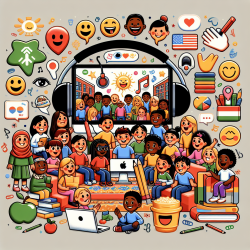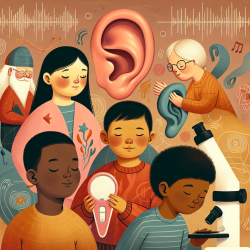Introduction
The COVID-19 pandemic has brought unprecedented challenges to healthcare systems worldwide. Among the myriad of issues, the debate over the separation of breastfeeding mothers and their infants has been particularly contentious. The research article "When separation is not the answer: Breastfeeding mothers and infants affected by COVID-19" by Tomori et al. (2020) provides valuable insights into the implications of such separations and offers guidance for practitioners navigating these complex decisions.
Understanding the Research
The study by Tomori and colleagues highlights the potential harms of separating mothers with COVID-19 from their newborns. While the intention behind separation policies is to prevent viral transmission, the research suggests that the benefits of breastfeeding and mother-infant contact outweigh the risks, provided appropriate precautions are taken.
The World Health Organization (WHO) supports immediate post-partum mother-infant contact and breastfeeding, emphasizing the need for respiratory precautions. However, some countries have adopted stricter infection prevention and control (IPC) policies that discourage or prohibit breastfeeding, leading to significant disruptions in maternal and infant health.
Key Takeaways for Practitioners
- Promote Breastfeeding: Encourage breastfeeding as it provides essential nutrients and antibodies that help protect infants against infectious diseases.
- Implement Safety Precautions: Ensure that mothers with COVID-19 follow strict hygiene and respiratory protocols to minimize the risk of transmission while breastfeeding.
- Support Mother-Infant Bonding: Facilitate skin-to-skin contact and rooming-in practices to strengthen the emotional and physical bond between mother and child.
- Educate and Advocate: Educate families about the benefits of breastfeeding and advocate for policies that support mother-infant togetherness.
Encouraging Further Research
While the research by Tomori et al. provides a strong foundation, further studies are needed to explore the long-term impacts of mother-infant separation during pandemics. Practitioners are encouraged to contribute to this body of knowledge by conducting research and sharing findings with the broader healthcare community.
Conclusion
As we continue to navigate the complexities of the COVID-19 pandemic, it is crucial to prioritize the health and well-being of both mothers and infants. By embracing the research-backed benefits of breastfeeding and mother-infant contact, practitioners can play a pivotal role in ensuring positive health outcomes. Together, we can advocate for policies that support families and promote the best start in life for every child.
To read the original research paper, please follow this link: When separation is not the answer: Breastfeeding mothers and infants affected by COVID-19.










